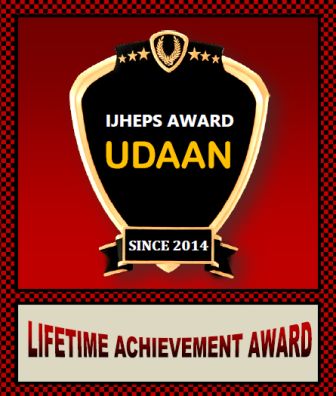
e-ISSN 2320-2955, p-ISSN 2249-2569, ISBN 978-81-909047-9-7
INTERNATIONAL RESEARCH JOURNAL OF HUMANITIES,
ENGINEERING & PHARMACEUTICAL SCIENCES
(An International Registered Research Journal) - Now IJHEPS Recommended By International Committee of Medical Journal Editors, USA
- Now IJHEPS Recommended By International Committee of Medical Journal Editors, USA
| HUMANITIES | |
|---|---|
| Title | THE IMPACT OF OPERATION OF OIL AND GAS COMPANIES ON WATER QUALITY: A CO-OPERATE SOCIAL RESPONSIBILITY PERSPECTIVE IN THE NIGER DELTA REGION OF NIGERIA |
| Authors | Joshua Williams Kwari, Sherry Waji Angyu-Petinrin & Godwin Abacha Ayashim |
| Page No | 1-9 |
| Code | Int./JAN16/H1107 |
| Affiliation | Federal University Wukari, Nigeria |
| Abstract | The economic importance of crude oil cannot be overemphasized. It has become an essential component in the daily operations of virtually all sectors of the global economy. With demand for crude oil and its derivatives set to grow by 21 % over the next 20 years, it is imperative to note that there will be increasing activity by oil corporations and multinationals within the foreseeable future. The benefits of exploration and production of crude oil has however come with a dark side. This is in the form the negative impacts the operations of this oil companies have had on the aquatic and marine environment with host communities in developing nations being affected the most. The Niger-Delta oil spills have unleashed millions of barrels of crude oil into water bodies as a result of the operations of oil exploration companies within the region. The severity of these incidents cannot be quantified but there is no doubt it has caused untold hardship for the indigenes of the host communities who depend on their territorial waters for a living. The findings of this work has shown that ample attention has not been paid to spill detection and clean up within the Niger-delta region as compared to other regions in the developed world. This implies that oil companies play double standards when implementing corporate social responsibility (CSR) as regards to water quality. This however is partially blamed on the general instability and corrupt practices within the region. Hence we recommend that both the oil companies and government of Nigeria should implement stringent measures to meet international water quality standards when operating as can be visibly seen by available practices in developed countries. |
| Paper | Download |









